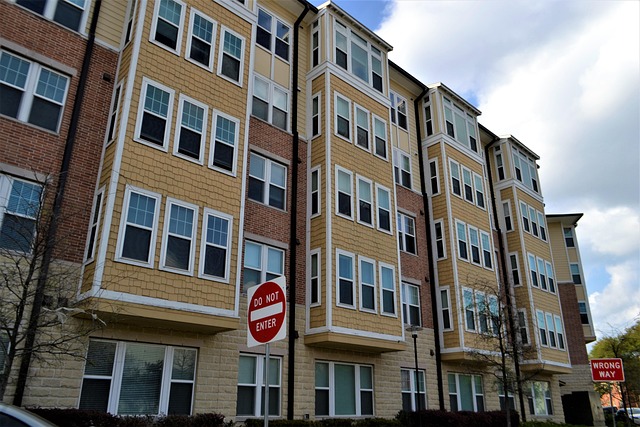Credit checks are vital tools for landlords in the renting process, offering insights into tenants' financial reliability and helping to anticipate potential issues with rent payments or property damage. While they facilitate informed rental decisions and reduce tenant turnover, landlords must balance these benefits against privacy concerns and comply with legal standards like the Fair Housing Act (FHA). Best practices in credit check processes, including clear communication, accurate data, and multiple verification options, benefit both landlords and tenants, fostering positive relationships and enhancing accessibility in a competitive rental market.
Background checks play a significant role in rental renewals, influencing tenant retention and landlord decisions. This article offers a comprehensive overview of how background checks, particularly credit checks, impact the rental renewal process. We explore their function, benefits, drawbacks, legal aspects, and best practices for both landlords and tenants. By understanding these dynamics, you’ll gain valuable insights into navigating rental agreements with confidence.
- Understanding Background Checks in Renting: A Comprehensive Overview
- The Role of Credit Checks in Rental Renewal Processes
- Impact on Tenant-Landlord Relationships: Pros and Cons
- Legal Considerations and Fair Housing Act Compliance
- Best Practices for Landlords and Tenants: Ensuring a Smooth Process
Understanding Background Checks in Renting: A Comprehensive Overview

In the realm of renting, background checks play a pivotal role in ensuring the safety and security of both properties and landlords. These checks, often encompassing credit checks and criminal record reviews, serve as a comprehensive overview of a prospective tenant’s financial and legal standing. By delving into this information, landlords can make informed decisions about rental renewals, evictions, and overall risk management.
Credit checks in particular are a crucial aspect, providing insights into the tenant’s payment history, outstanding debts, and credit score. This data helps landlords gauge financial responsibility and predict potential issues with rent payments or property damage. Moreover, background checks help identify red flags that may indicate a higher risk of tenant turnover or legal complications, enabling proactive measures to mitigate these risks.
The Role of Credit Checks in Rental Renewal Processes

In the realm of renting, credit checks play a pivotal role in rental renewal processes. Landlords often conduct thorough background checks to assess potential tenants’ financial stability and responsibility, which is crucial for ensuring timely rent payments and maintaining property integrity. These checks involve verifying income, employment history, and credit scores, providing landlords with valuable insights into a tenant’s ability to meet their financial obligations.
By implementing credit checks, landlords can make informed decisions when renewing rental agreements. A tenant’s creditworthiness directly impacts their likelihood of continuing as a responsible renter. Positive credit histories demonstrate a track record of financial reliability, while negative or limited credit may raise concerns about consistent rent payments. Thus, credit checks serve as a vital tool for landlords to manage risk and ensure a seamless rental experience for both parties.
Impact on Tenant-Landlord Relationships: Pros and Cons

Background checks, often in the form of credit checks, play a significant role in rental renewals, impacting the relationship between tenants and landlords. On one hand, these checks provide landlords with valuable insights into potential or existing tenants’ financial reliability and responsible behavior, fostering trust and ensuring timely rent payments. A clean credit history can enhance tenant-landlord relations by demonstrating a lower risk of default, allowing for smoother interactions and potentially more favorable rental terms.
However, the process may also create friction. Tenants might perceive credit checks as an invasion of privacy or an unnecessary hurdle, especially if they have no history of missed payments. Moreover, negative information on a credit report could lead to rejections, impacting tenants’ ability to find accommodation and creating a sense of dissatisfaction with the landlord’s decision-making process. Balancing the need for responsible renting practices and maintaining positive tenant relationships is crucial, especially in today’s competitive rental market where fostering good will and understanding can set landlords apart.
Legal Considerations and Fair Housing Act Compliance

Background checks, especially credit checks, play a significant role in rental renewals, but landlords must navigate these processes carefully to maintain compliance with legal standards, particularly the Fair Housing Act (FHA). The FHA prohibits discrimination in housing-related activities, including rental agreements and renewal processes. Landlords cannot deny a renewal based solely on an applicant’s credit score or background information; instead, they must consider it within the context of other relevant factors.
When conducting credit checks for rental renewals, landlords should be mindful of their rights and responsibilities. They are allowed to review an applicant’s credit history as part of a comprehensive screening process, but any adverse actions based on this information must be justified and nondiscriminatory. Landlords should document their reasons for denying or delaying a renewal after reviewing the credit report, ensuring that these decisions are fair and in line with the FHA guidelines.
Best Practices for Landlords and Tenants: Ensuring a Smooth Process

For landlords, implementing best practices during the background check process can streamline renewals and foster positive tenant-landlord relationships. This includes communicating openly about the purpose and scope of credit checks, ensuring accuracy in reporting, and providing clear timelines for results. Additionally, offering multiple ways to conduct these checks, like online portals or phone verification, enhances accessibility and convenience for tenants.
Tenants, on their part, should proactively verify their eligibility by maintaining good credit standing. Promptly responding to requests for documentation and keeping landlords informed about any changes in circumstances can facilitate a smooth rental renewal process. Understanding their rights regarding privacy and fair treatment during these checks is also crucial for tenants to ensure a positive experience.






